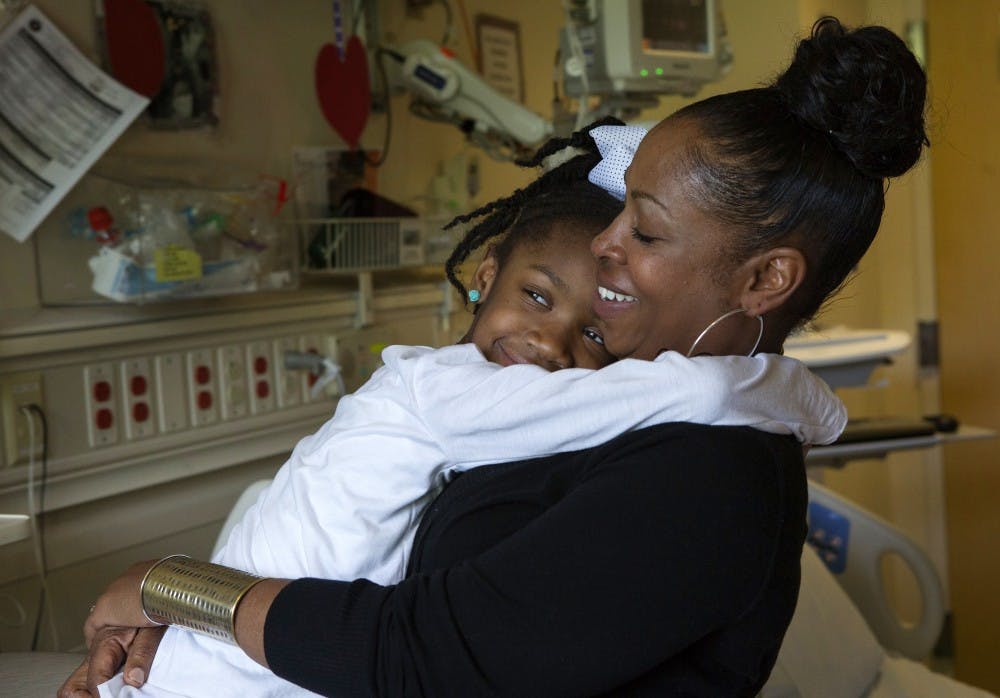On any given day more than 123,000 people are on a waiting list, anxiously hoping to be lucky enough to receive life-altering organ donations. Every 10 minutes, another person gets added to that same list.
In 2015, the number of organ donations in the U.S. hit a record high with a five percent increase from 2014, and people are beginning to think the increase is indicative of an adequate number of organ donors.
Yes, 90 percent of the adult population supports organ donation, but unfortunately, less than half of those polled are actually registered donors themselves.
YOLO! Your Organs Live On! #DonateLife #DLA2015
— Brianne Mundy Page (@bmundy80) October 21, 2015
The University of Geneva tried to explore the discrepancy between voter support, and actual donor registration. As it turns out, many respondents expressed mistrust in the medical professionals and their processes. If you are not a registered donor before tragedy strikes, the decision to donate then becomes the responsibility of your next of kin. Some respondents admitted they would not donate their loved one’s organs if their heart was still beating, even if they had been declared brain dead.
Approximately 7,000 Americans die each day. Many of those who pass away are healthy up until their death, and most of them still have organs or tissues that could save the life of another. Statistically speaking, each donor could potentially save the life of up to eight people.
Being an organ donor in Arizona is as simple as checking “yes” on the driver’s license paperwork, or hopping online and plugging in your information. It has always been easy to make the choice, but I do not think being a donor should be optional anymore.
I understand the sanctity of life argument. I understand that it is a difficult call to make because it makes dying appear more permanent than it already is. But, I also see no reason in allowing personal choice to dictate who gets to live on.
It's #HeartMonth! Care for yours + then #donatelife Did you know a #virus can cause a need for a #transplant? pic.twitter.com/87K2xOYCXl
— Live On! Inc. (@LiveOnOrgans) February 1, 2016
Between the lack of pre-registration and the hesitance of family members, 21 mothers, fathers or children die every day waiting for valuable organs they never receive.
I cannot help but feel that being a donor ends your life on a charitable note. What good is your body once you can no longer control it? If you cannot make use of it, you should be compassionate enough toward the human race to let your physical body go.
For some people, like Heather Clark, seeing their loved one’s death create a new life for someone else is therapeutic. Her deceased 18-month-old son’s heart lives on in 4-year-old Jordan’s chest, and the video truly says it all. Most amazingly, with one infant’s body, and his mother's consent, three lives were saved.
Mom hears son's heartbeat after his deathA mom in Arizona donated her 18-month-old son's organs after he died. She recently met with the family of one of the lives he saved. http://cnn.it/1PaKTei*Editor's note: Lukas Clark was 7-months-old when he died. The original video post says he was 18-months-old at the time of his death.
Posted by CNN on Monday, February 1, 2016
If being an organ donor became mandatory, the loss of life would never be in vain.
Related Links:
ASU takes on UA, NAU in organ donation drive
Organ donation: Opt-in system should become opt-out
Reach the columnist at Kendra.Penningroth@asu.edu or follow @KPenningroth on Twitter.
Like The State Press on Facebook and follow @statepress on Twitter.
Editor’s note: The opinions presented in this column are the author’s and do not imply any endorsement from The State Press or its editors.
Want to join the conversation? Send an email to opiniondesk.statepress@gmail.com. Keep letters under 300 words and be sure to include your university affiliation. Anonymity will not be granted.




